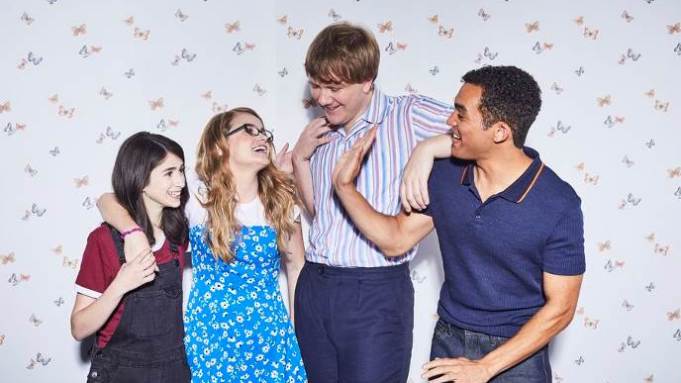Vale Everything’s Gonna Be Okay series 2
Josh Thomas’ Everything’s Gonna Be Okay has had a lot of positive media coverage. Often the focus has been on how it has positively and realistically portrayed characters who are neurodiverse and/or not heteronormative. And yes, it has done that. Depression, panic attacks, anxiety, awkwardness, frustrations, missteps, arguing couples…it’s all been covered – and in a way that has rarely been seen on TV previously.
However, the one big thing missing from much of Everything’s Gonna Be Okay has been a compelling reason to watch it. Leaving aside the latter episodes, which, SPOILERS, contained dramatic events including a relationship breakdown and a will they/won’t they/should they wedding plot, much of the series just seemed to just drift along. Even the notion that Nicholas (Thomas) has a career as an entomologist, or that Matilda (Maeve Press) and Genevieve (Kayla Cromer) have to go to school, or that Alex (Adam Faison) is trying to become a dentist, seem to have been forgotten as potential drivers of the storyline in favour of episodes which just seemed to involve the principal cast mooching around the improbably enormous and beautiful house they all live in. Was this because they were confined to home due to COVID lockdowns? Hard to tell, as the pandemic was barely mentioned in this series.
You could argue that Everything’s Gonna Be Okay was trying to challenge the traditional three-act, A- and B-plot, structure of most contemporary sitcoms, by experimenting with something a bit more freeform. But if that’s what the show was doing, it didn’t work. Not if the aim was to produce something entertaining, anyway.
Oh, and wasn’t Everything’s Gonna Be Okay meant to be a comedy? Because jokes and funny lines and amusing situations were also not a feature of this show. Occasional witty lines or wryness from a character was about as much as we got. That and truckloads of poignancy about them coping with something. Or attempts to be charming, which mostly came across as tweeness or sappiness.
So, while Everything’s Gonna Be Okay has absolutely succeeded in representing rarely-seen character types on our screens, it has absolutely failed as comedy and entertainment. This is a shame, as there’s definitely no reason we can think of why a comedy about neurodivergent characters with a range of sexualities couldn’t be hilarious. The problem here seems more that the people behind this show didn’t want to or couldn’t be bothered to go there, and that no one on the production side questioned this.

